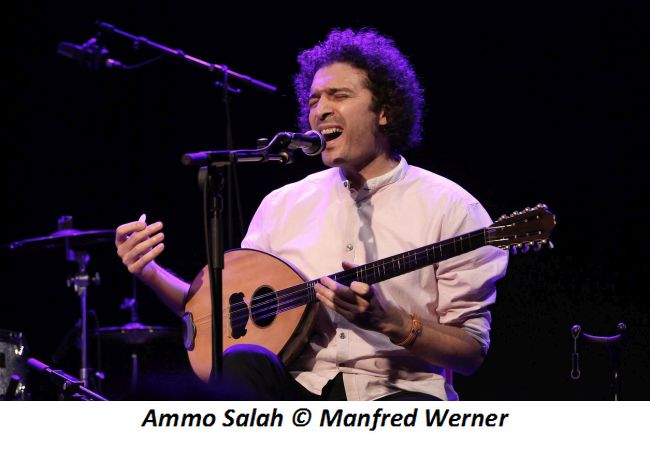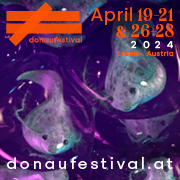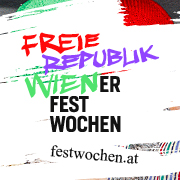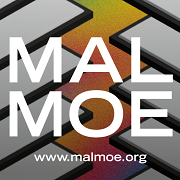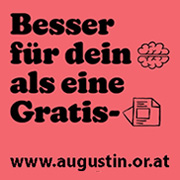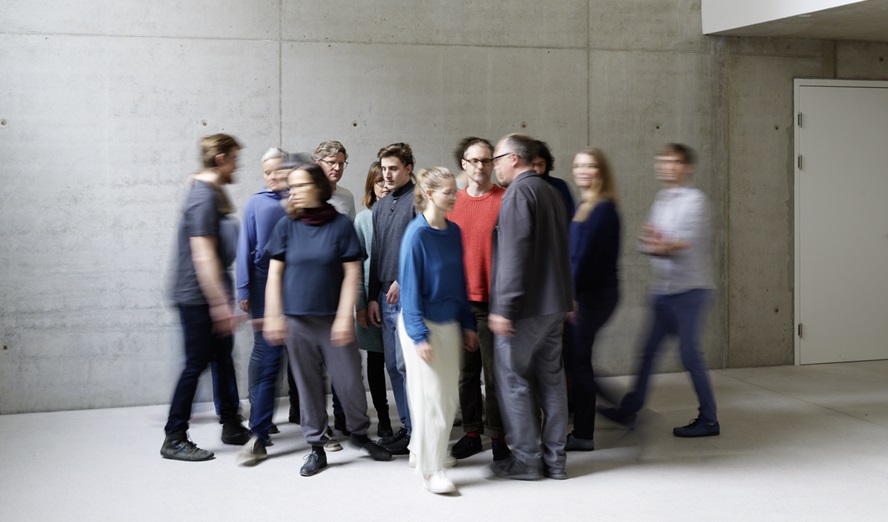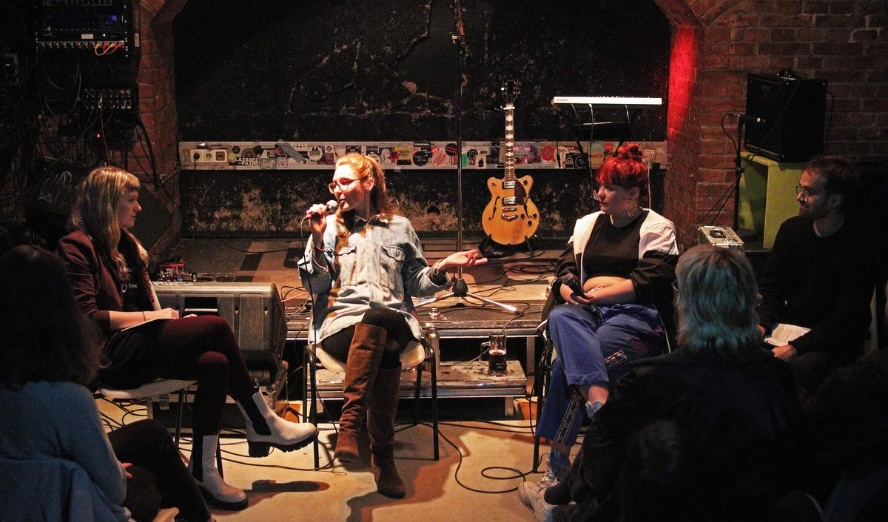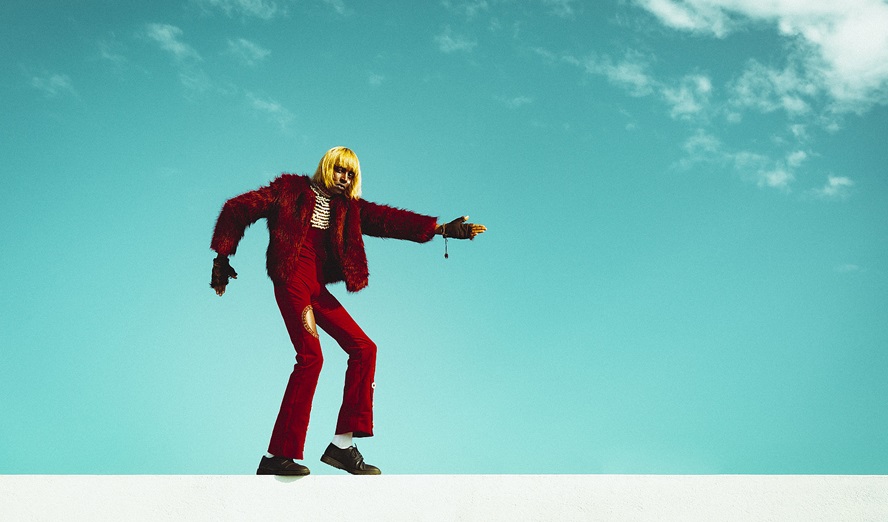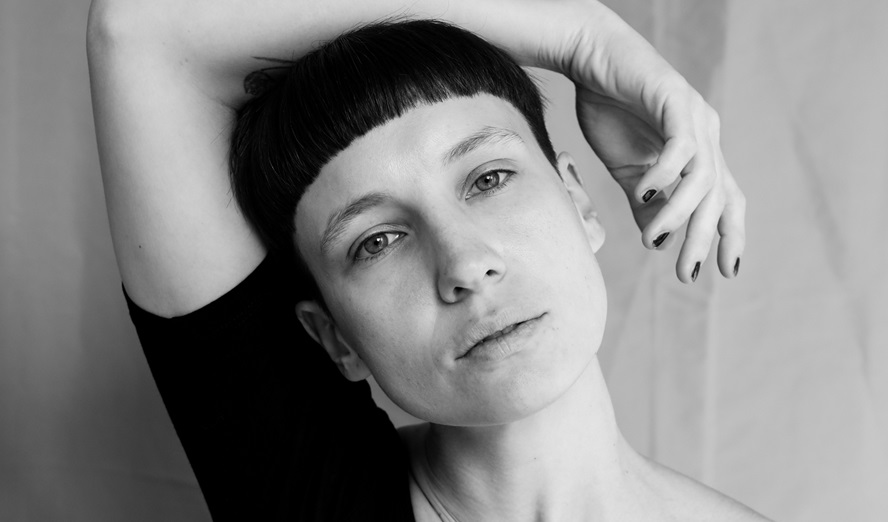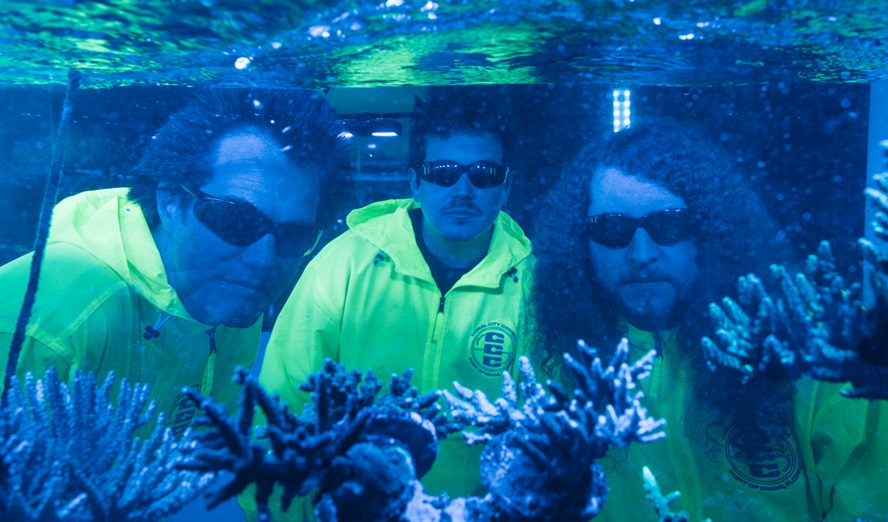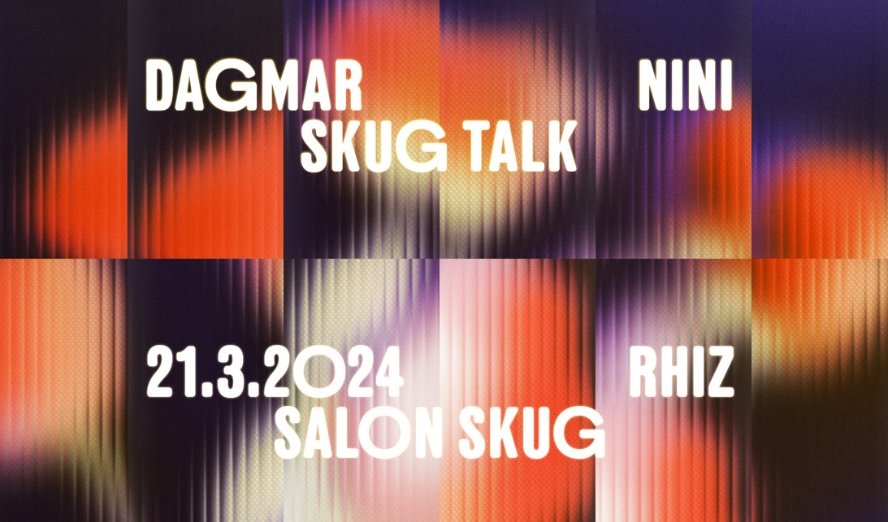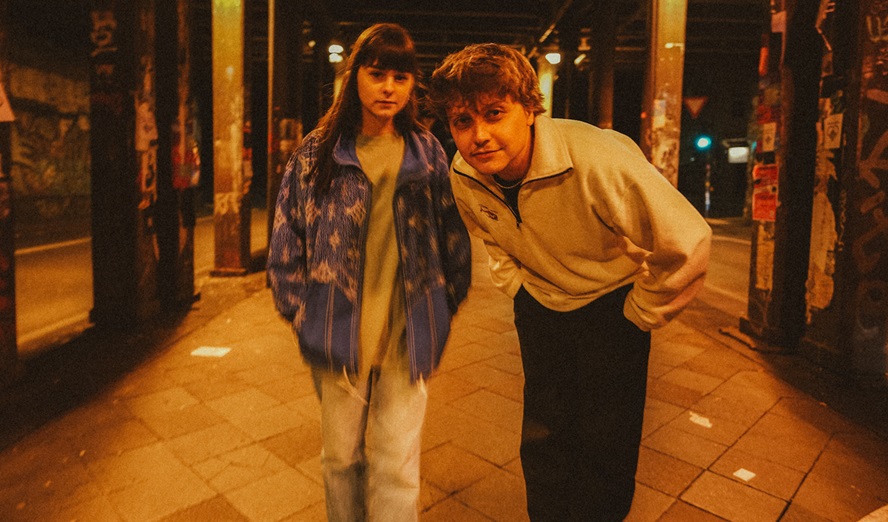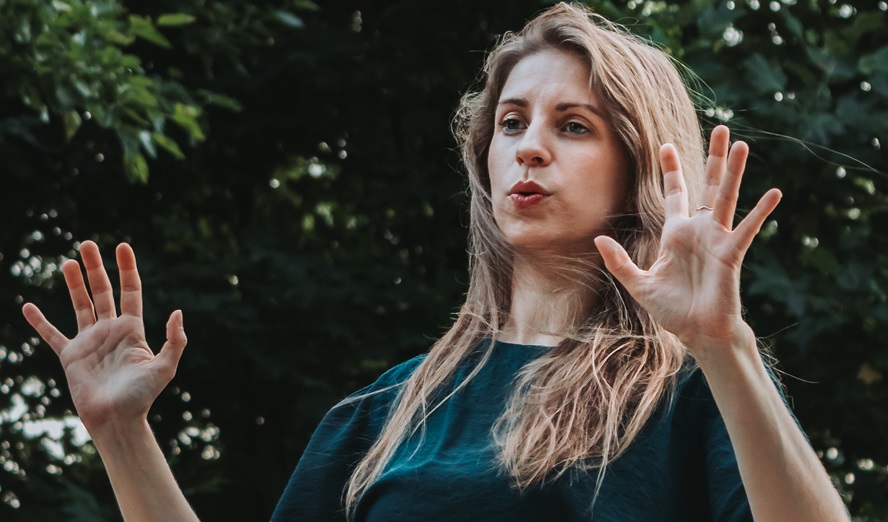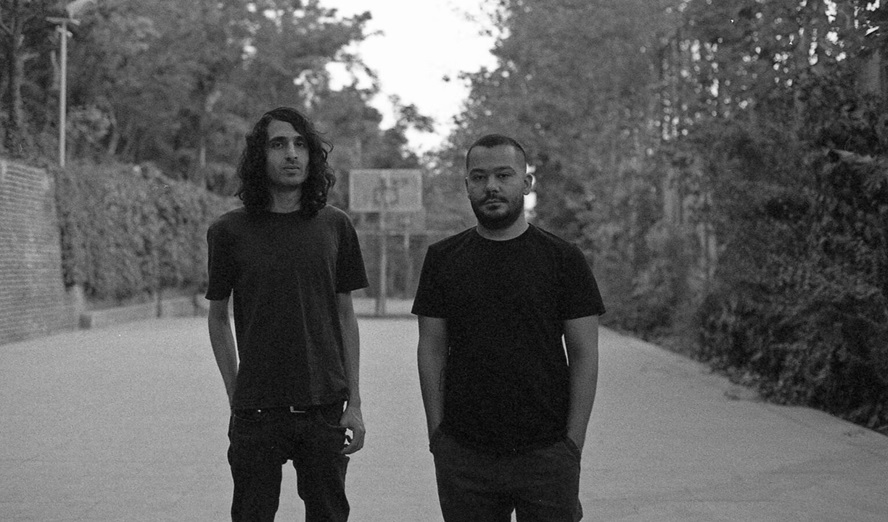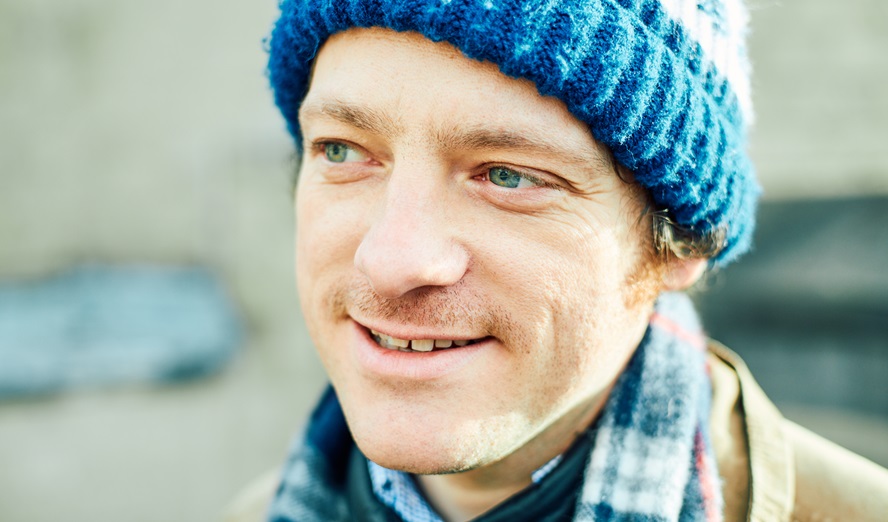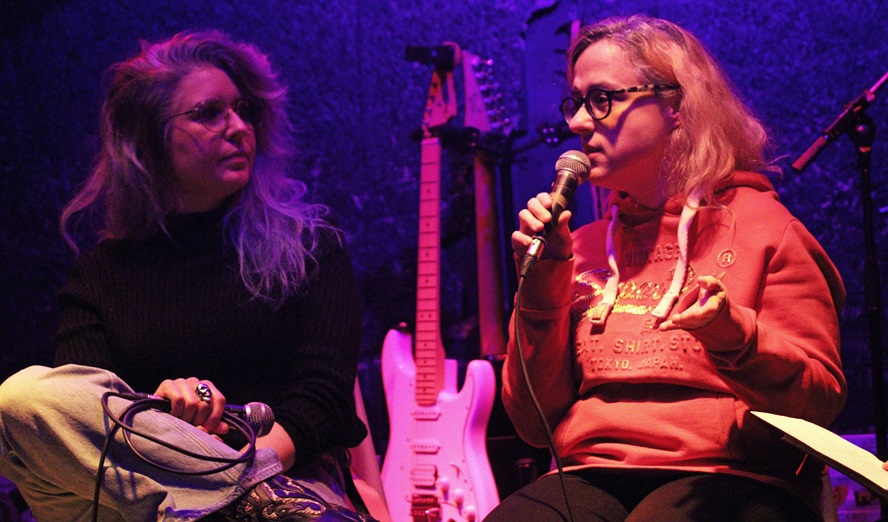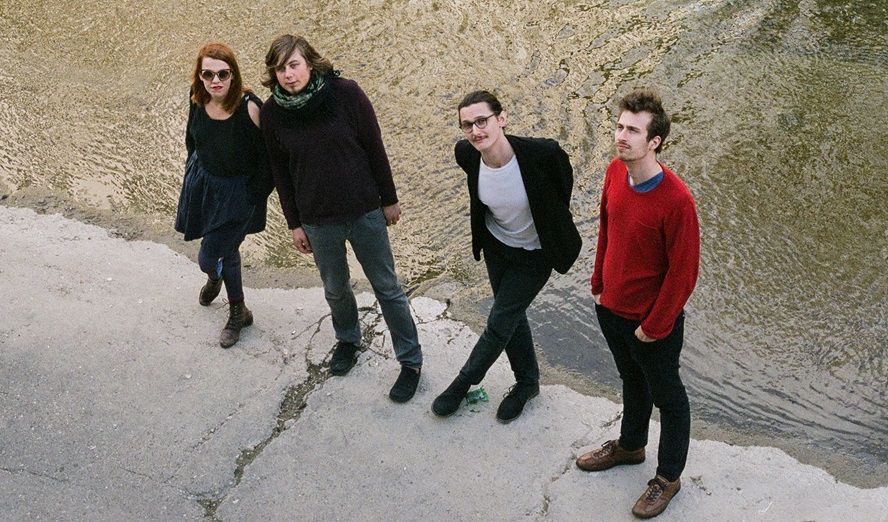Salah Ammo was born in Darbasiyah, a town in the North-East of Syria on the border with Turkey and close to Iraq, in a region where Kurds, Arabs, Turks, Armenians and Assyrians lived together for thousands of years. As a Syrian Kurd songwriter he is influenced by all these different cultural and musical traditions. He plays the traditional Kurdish instrument bouzouk, his compositions include songs in both Kurdish and Arabic, instrumental music and soundtracks for films and theatre plays. In 2010 he published his first album »Morning Breeze« with own compositions, a year later the album »Places and Directions« with Joussour Group. In 2014 he released his third album »Assi – A Story of a Syrian River« with the Austrian percussionist Peter Gabis. In Vienna, his current – and hopefully last – home, as he puts it, he founded an Oriental jazz quartet with special guest Patrick Dunst.
You founded a band project in Syria in 2007. Could you please talk about that?
The name of the band is Joussour Group. The meaning of joussour is bridges. We were eight musicians, each musician from a different ethnic group. We played Aramaic songs, Arabic songs, Kurdish songs, Armenian songs. For us, making music was an easy way to ensure cultural exchange and expose our audiences to the rich musical heritage of the Mesopotamian area.
But it was not easy for you to try to represent the different cultures?
No, the regime was against me. The Ba’ath regime tried to create a new Arabic identity. They give rights to the different peoples not as ethnic, language or music communities but just as religious groups. But this is phony because it was a Christian country in former times. Even the Christians in the north of Syria had to learn Arabic in the 1960s. For example, the prime minister of Malaysia, Mahathir Mohamad, who changed the history of his land and made it great again, wrote in the first declaration: I want to make Malaysia the second Syria. It was a good example in the Middle East in the 1950s. It was strongly influenced by France, Syria was a Francophile country.
What are your religious beliefs?
Personally speaking I have to say that I have no religion, my religion in a way is music. I believe that all religions can help people to live a better life.
For your album »Assi« you selected a poem from the Palestinian Mahmud Darwish. As a metaphor the title of the opening track, »The Kurd Has Nothing But the Wind«, is very touching.
For me it summarises the situation and history of the Kurds. I like these sentences, this notion that the Kurd, who has no homeland, has nothing but the wind. When you lose your passport, your identity, the only thing you have, your only companion is the wind. The Palestinian poet Mahmud Darwish, who had to live in many different countries and died some years ago in America, dedicated this poem to his friend Salim Barakat, a Syrian-Kurdish poet. I composed the songs for my third album »Assi« during the time of the Syrian war. Everything was somehow related to this situation. As a musician, as a human being I could not escape what was going on. I wanted to talk about it, although I was already at a safer place here in Vienna at that time.
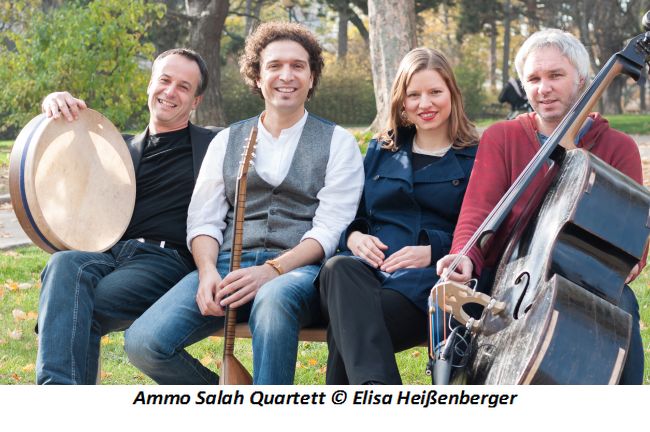
Did the lyrics and music change with your new quartet here in Vienna?
With my quartet things have totally changed. First of all, the war in Syria has lasted a long time already and as an artist I cannot spend my whole live analysing this situation. Of course I am still following the news but I am part of a new community and a new country. After four years I really feel at home here in Vienna. So now this is the first time I write music for a jazz quartet, that is, for double bass, piano, percussion and saxophone. But we don’t say that we play jazz music, although the musicians involved have deep experiences in jazz – what we play is world music. Each musician could arrange a composition to show the different identities in our band.
Would you call yourself a songwriter?
Each song has a story, is an attempt to catch a special moment. »Blue Sky«, for instance, deals with my deportation from the UK to Austria. I was imprisoned eight days in Campsfield while they were preparing to send me to Austria. I was totally depressed because I could not understand why I had to go to Austria, just because of some strange UN conventions. I was accepted to teach Arabic Music at the Orientalism Department at the Cardiff University. My professor at the Ethnomusicology Centre was even interested in collaborating on a project about the identity of Kurdish music. At the Campsfield detention centre the weather was grey all the time. I just could not understand why they treated me like a criminal. During the flight my bad mood didn’t change. The first thing I saw in Austria was a blue sky. I said, »at least blue skies« and I composed this song »Blue Sky«.
But you don’t write only about your own feelings?
I don’t write only about my own feelings. I meet people and sometimes they tell me things and really touch me with their words. And by the way, in addition to this quartet I have another project. I play at the Burgtheater in an event staged by André Heller. It is called DD Band. The double D stands for Dabka dilan. Dabka means dance in Arabic, dilan dance in Kurdish, so it is all about dance. I created this project after the assaults in Cologne on New Year’s Eve where refugees abused women. I played a concert in Innsbruck at the Treibhaus with the clear intention of inviting refugees and Austrian people to dance together to electronic music for three hours. And it was really crowded but nothing bad happened. I want to do this event called »Come together, move together« in Vienna also, maybe monthly at the WUK. DD Band will also play at the 23rd Wiener Flüchtlingsball this February. Another project is an oriental music workshop combined with a concert with the Vienna Radio Symphony Orchestra. So, these are my tools to fight for a better world and mutual understanding.
Jeunesse-Konzerte Salah Ammo Quartett
Mit dem Motto »Meine neue Heimat«
17.01.2017 | Dienstag | 19.30 | Wien | Wiener Konzerthaus | Mozart-Saal
19.01.2017 | Donnerstag | 9.00 | Zwettl | Stadtsaal Zwettl (Schulkonzert)
19.01.2017 | Donnerstag | 19.30 | Zwettl | Stadtsaal Zwettl
10.03.2017 | Freitag | 19.00 | Wien | Wiener Konzerthaus | Mozart-Saal (Jugendformat music4u,+12)
30.03.2017 | Donnerstag | 20.00 | Goldegg | Schloss Goldegg | Kemenatensaal
 23.05.2017 | Dienstag | 11.00 | Eisenstadt | Kulturzentrum Eisenstadt (Schulkonzert)
23.05.2017 | Dienstag | 11.00 | Eisenstadt | Kulturzentrum Eisenstadt (Schulkonzert)
27.05.2017 | Samstag | 20.00 | Tamsweg | die künstlerei
Salah Ammo Quartett
Salah Ammo, Bouzouk, Gesang
Julia Siedl, Klavier
Oliver Steger, Kontrabass
Peter Gabis, Hang, Perkussion, Obertongesang
Special Guest in Wien: Patrick Dunst, Saxophon
www.jeunesse.at
Weitere Termine:
26.01. Burgtheater
Salah Ammo DD Band »details
23.02. Wiener Flüchtlingsball
Wiener Rathaus
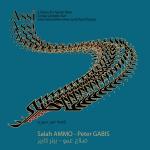 Diese sinnlichen Klänge der Bouzouk (syrische Langhalslaute), die sachte von Peter Gabis‘ variantenreicher Percussion und teils Obertongesang begleitet werden, wurzeln im syrischen Kurdistan und man merkt ihnen das Leiden am tragödischen Schmerz an. Salah Ammo verfügt über eine Stimme mit begnadet klagendem Schmelz und muss im österreichischen Exil, das er sich nicht ausgesucht hat, ohnmächtig zusehen, dass nicht die Rebellen, sondern die kulturl…
Diese sinnlichen Klänge der Bouzouk (syrische Langhalslaute), die sachte von Peter Gabis‘ variantenreicher Percussion und teils Obertongesang begleitet werden, wurzeln im syrischen Kurdistan und man merkt ihnen das Leiden am tragödischen Schmerz an. Salah Ammo verfügt über eine Stimme mit begnadet klagendem Schmelz und muss im österreichischen Exil, das er sich nicht ausgesucht hat, ohnmächtig zusehen, dass nicht die Rebellen, sondern die kulturl…
